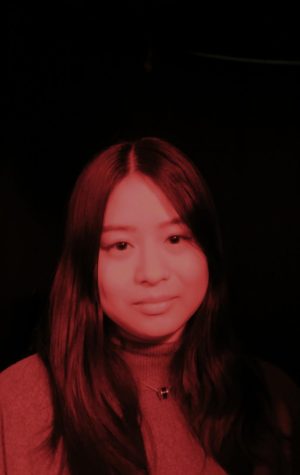Luciana Qu, Staff
March 10, 2023
How has your celebration of Lunar New Year changed since quarantine?
My family actually resides currently in Seattle. Pre-COVID-19, my parents would always host these really big dinners and celebrations with as many families as possible. We would have about three full families under one roof and we would take pictures and really eat a lot. During COVID-19, this was kind of put off because a lot of families were scared. So it was put off for a couple years, but now it’s back to being a thing. We’re really lucky. My grandparents in the past have cooked a lot of food for us and my parents would take pictures, lots and lots of pictures, and everybody would be eating. We just played Mahjong until like, three in the morning. It was a really big deal. It was a way for the family to really spend time together.
How do you view Lunar New Year as an Asian American?
Lunar New Year is the biggest celebration for a lot of East Asians, and it’s really difficult to not have the type of celebrations that we typically see in Asia, with the dancing lions and the firecrackers. It’s really difficult because you don’t really see the impact as a culture or as a societal norm for Lunar New Year [in the US]. In China, you don’t really have to create this event. Whereas here, especially in places that don’t have a massive Asian American population, what you have to do is you have to create that kind of vibe at home, which is very secluded. Growing up, my parents tried really, really hard to make that a celebration. But you could see that extreme dichotomy growing up, where inside your home, it’s family and festivity, and as soon as you step outside, it’s a normal day for most Americans.
Why do you think it’s important to hold on to these traditions?
I think that for a part of just growing up as an Asian American, very little needs to be said — we just look different for most people and what we look like isn’t typically considered as what Americans consider as American. We just look different, and as a result the way that we perceive ourselves and the way people may have treated us growing up really affects how we see ourselves and our identities. So holding onto these traditions I feel gives us a connection to not only just our ancestors and people back home in China or anywhere else, but also gives me something to relate to people who look like me, who celebrate these things with me. It feels like a very small part of something a lot bigger, that this is something that has been happening for thousands of years and feeling like I’m part of that also makes me feel like I belong in that culture. And it’s really powerful when you come here as an immigrant, and you feel like you’re always the minority and that people don’t celebrate the same things that you do. It’s kind of like you bring a lunch box full of like Chinese food that your parents made and people are looking at you like, “What is that? Why does it smell so weird?” It’s kind of like that, but in terms of a much bigger scale. Right now, you have a celebration which means so much to millions, billions of people around the world. But it’s so unknown over here in the Western Hemisphere.
What hopes do you have for the new year?
I want to look to this year for growth. I think emotionally and familiarly I’ve been separated from my parents for about 10 years, and I really feel like family is such an important thing to continue maintaining that connection to. With Chinese New Year just passing, it really reminds us how important it is to be close to our loved ones and to find that connection to somebody who really understands what we’re going through as minorities or immigrants or people who just celebrate things a little bit differently.
How do you view the future of Lunar New Year?
I know that what happened in California earlier this year was completely devastating to the Asian American community and I know that during that time, one of the public representatives let people know that they still wanted the [new year] celebration to be taking place, [despite] the awful, devastating impact that happened. And so on one hand, it’s devastating. And on the other hand, it’s also so encouraging to see that there are people who are still trying very hard to create that kind of pocket of tradition, just to feel like they’re part of a community who see the impacts of celebrating such a large thing. It’s the diaspora of East Asian Americans and Southeast Asian Americans and it’s really powerful and encouraging to see this, just to see them really trying to persevere through this pain and continuing the traditions that they’ve been used to for the past thousand of years.

